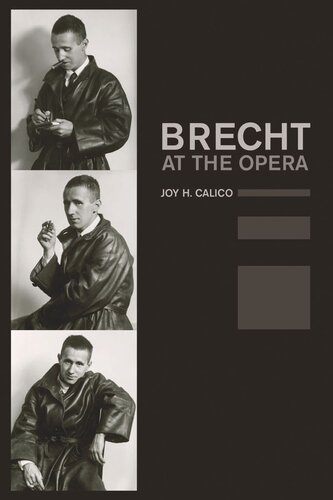

Most ebook files are in PDF format, so you can easily read them using various software such as Foxit Reader or directly on the Google Chrome browser.
Some ebook files are released by publishers in other formats such as .awz, .mobi, .epub, .fb2, etc. You may need to install specific software to read these formats on mobile/PC, such as Calibre.
Please read the tutorial at this link: https://ebookbell.com/faq
We offer FREE conversion to the popular formats you request; however, this may take some time. Therefore, right after payment, please email us, and we will try to provide the service as quickly as possible.
For some exceptional file formats or broken links (if any), please refrain from opening any disputes. Instead, email us first, and we will try to assist within a maximum of 6 hours.
EbookBell Team

4.8
64 reviewsFrom an award-winning author, the first thorough examination of the important influence of opera on Brecht’s writings.
Brecht at the Opera looks at the German playwright's lifelong ambivalent engagement with opera. An ardent opera lover in his youth, Brecht later denounced the genre as decadent and irrelevant to modern society even as he continued to work on opera projects throughout his career. He completed three operas and attempted two dozen more with composers such as Kurt Weill, Paul Hindemith, Hanns Eisler, and Paul Dessau. Joy H. Calico argues that Brecht's simultaneous work on opera and Lehrstück in the 1920s generated the new concept of audience experience that would come to define epic theater, and that his revisions to the theory of Gestus in the mid-1930s are reminiscent of nineteenth-century opera performance practices of mimesis.